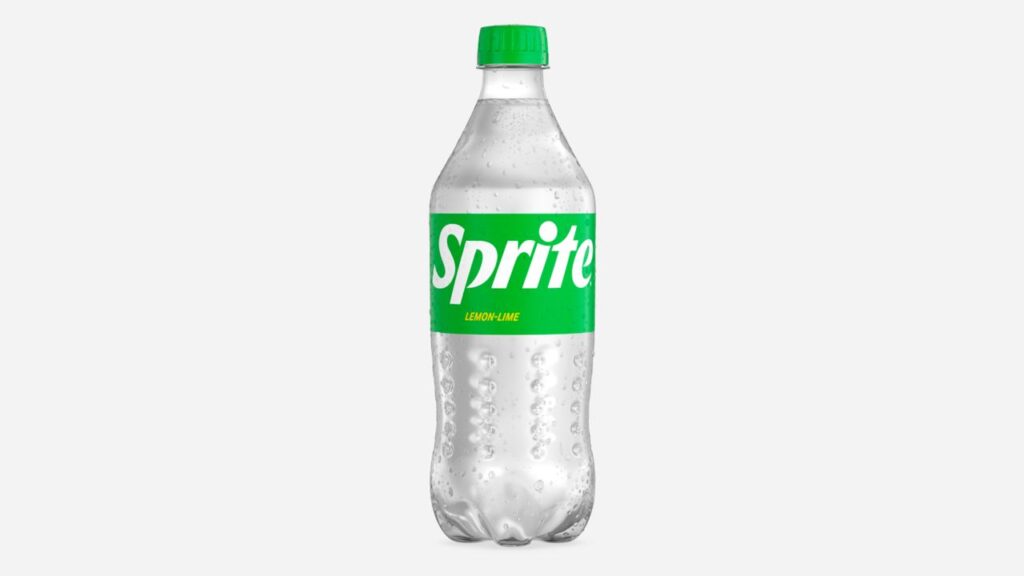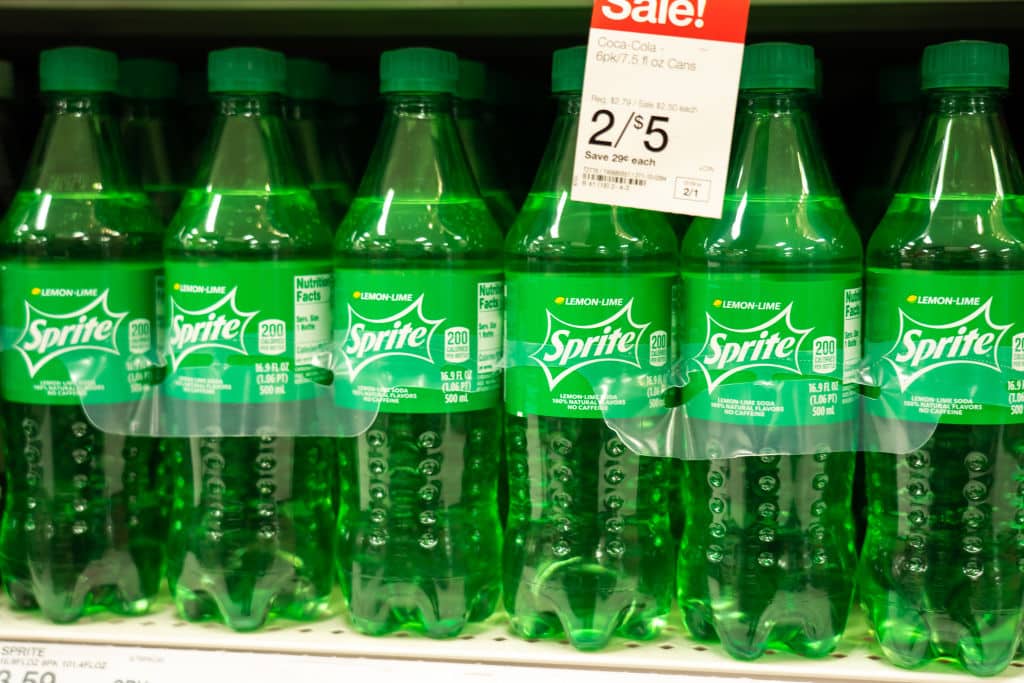Products You May Like
Bottles of Sprite, a lemon-lime beverage produced by the Coca-Cola Company, seen in a Target superstore. Alex Tai / SOPA Images / LightRocket / Getty Images

Why you can trust us
Founded in 2005 as an Ohio-based environmental newspaper, EcoWatch is a digital platform dedicated to publishing quality, science-based content on environmental issues, causes, and solutions.
After 60 years, Sprite, the popular lemon-lime soda from Coca-Cola, is getting a new look. The revamp? Swapping from its translucent green bottle to a clear bottle, at least in North America. Coca-Cola says the reason for the switch is to increase recyclability of the soda bottles, but critics note that it’s not the color of the bottle that is the problem. It’s the fact that the bottles are still single-use plastic.
The green Sprite bottles are recyclable, but Coca-Cola said that non-clear plastics are usually separated from clear plastics during recycling sorting. This is meant to prevent clear, food-grade plastics from becoming discolored. Instead, many non-clear polyethylene terephthalate (PET), like Sprite’s green bottles, are turned into “single-use items,” like clothes or carpets, according to the company.

“Taking colors out of bottles improves the quality of the recycled material,” Julian Ochoa, CEO of R3CYCLE, which is working with Coca-Cola, said in a statement. “This transition will help increase availability of food-grade rPET. When recycled, clear PET Sprite bottles can be remade into bottles, helping drive a circular economy for plastic.”
The company plans to roll out the clear bottles starting August 1, 2022. Other Coca-Cola beverages bottled in green plastic, like Mello Yellow, Fresca and Seagram’s, will transition to clear bottles at a later date.
But environmentalists are sounding the greenwashing alarm, as Coca-Cola is still producing billions of single-use plastic bottles per year. Rather than coming up with truly reusable solutions, the company has put extra focus on recycling efforts of consumers in recent years.
“Coca-Cola’s recent announcement is yet another blatant greenwashing attempt from one of the world’s worst plastic polluters,” said Kate Melges, Plastics Project Leader at Greenpeace, as reported by NPR. “We are in the midst of a massive plastic pollution crisis and we cannot recycle our way out of it.”
While Coca-Cola is emphasizing the recyclability of PET, the reality is that most plastics do not actually get recycled. As of 2018, the EPA reported that only 29.1% of PET bottles and jars were recycled in the U.S.
“Bottles with recycled content will still be thrown away, sent to landfills, or littered,” said Matt Littlejohn, senior vice president of strategic initiatives at Oceana.
Along with the announcement of new, clear bottles for Sprite, Coca-Cola also announced it will begin launching Dasani water in recycled PET bottles as part of its promise to reach 50% recycled materials in its products by the end of this decade.
Conservation organizations are calling on Coca-Cola to produce truly reusable, refillable bottles — which were once normal before the rise of plastic — instead of focusing on single-use bottles and recycling.
“In 2021, Coca-Cola manufactured 125 billion single-use plastic bottles — 13 billion more plastic bottles than the previous year. Instead of turning off its plastic tap, Coca-Cola is continuing to produce billions of throwaway bottles every year, impacting our health and harming our oceans, our climate, and our communities,” Melges said in a statement. “If Coca-Cola wants to be a real leader in the fight against the plastic and climate crises, it must be more ambitious and commit to 50% reuse and refill by 2030.”
Currently, Coca-Cola has a global target for 25% refillable or returnable glass or plastic packaging by the end of this decade.
Subscribe to get exclusive updates in our daily newsletter!
By signing up, you agree to the Terms of Use and Privacy Policy & to receive electronic communications from EcoWatch Media Group, which may include marketing promotions, advertisements and sponsored content.
